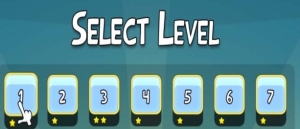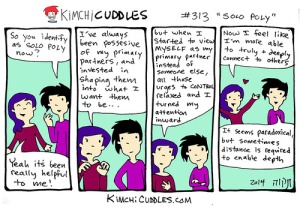Okie dokie, more discussion on Amara Charles’ Sexual Agreements.
Like I do, I have pulled out my favorite passages to share with you all, and bolded sections that I found particularly powerful. I enjoy sharing directly from the author, so you can get a true sense of their words and intentions.
Adding on to my general impressions from last week, I will emphasize again that while Charles has a specific viewpoint of what open relationships look like (you always put your partner first, having multiple partners has no name and is necessarily casual, etc), this book is a fresh and fast read for thinking about how, when, and why one would have honest conversations with partners about sex, freedom, and security. I recommend the book as another approach to kick-starting sexual honesty within relationships.
Favorite passages and notes:
“…there is no simple answer to the question of sexual freedom within a relationship. It is a very private and personal agreement between partners. One thing I do know is that when one begins exploring outside the accepted rules that most people live by, serious questions arise. As soon as some of the long-held inhibitions about sex start to shift, a new curiosity sets in. Many partners want to try different things and explore new sexual possibilities. An idea of greater sexual freedom arises. There is the idea of greater communication and more sensitivity, but there is little experience. A lot of miscommunication, fear, and deep emotions can rise to the surface.” (pxv)
“For whatever reason, honest communication about sex can trigger emotional upheavals within our relationships. When we begin to express intimate sexual feelings our fear, jealousy, possessiveness, or anger can easily arise. Sexual energy is very powerful, making it important that we be patient and tolerant with our self and our partner. It takes time and great care to make changes in our sexual ways. There are going to be doubts and mistakes. I haven’t met anyone who started creating sexual agreements without making some mistakes along the way.” (pxvi)
“Consciousness within our relations is the great awakening. It is only because of fear that consciousness remains cluttered. At some point, however, one notices how much of our precious life is wasted by living in the confusion and doubt we carry about sex.” (pxvii)
“Broken agreements can foster tension and mistrust. There is a way, however, to bypass all the drama and emotional battles that ensue. Rather than argue over who did what or who said what, determine why the agreement is not working in the first place. In other words, it is useless to blame each other. Take another look at the agreement itself.” (p4)
“You will know when you have created an understanding between you that is mutually beneficial because living these agreements will generate greater trust and intimacy, and more love between you.” (p5)
Common mistakes made when making agreements: misunderstanding the agreement, boundaries versus agreements (analogous here to to what Veaux and Rickert in More Than Two would call rules versus agreements), making agreements at the wrong time, keeping true feelings hidden, assuming the agreement is finished, ignoring small transgressions, forgetting agreements between self and spirit,
“Treat the fulfilling of agreements as sensitive journeys into new territory, even if you have had the agreement for years.
Talk to each other every time something within an agreement is put to the test. Do this all the time, not just the first time. Even though this may seem obvious or trivial, many forget to connect intimately and thank their partners for their trust and care.” (p15)
“A powerful way to alter patterns of broken agreements in your relationship is to completely honor all your personal agreements. The more care you give regarding your own honesty, truth, and integrity in all matters, the more grace you will have within your intimate sexual agreements. Honor the spirit and the letter of every single agreement you make, and the level of integrity with your intimate partner will increase.” (p16-7)
Sexual agreements within monogamous relationships:
“Agreements that are mutually beneficial nourish each part- ner and allow the deepest gifts of both to flourish. They are not about trapping one another into staying faithful or roping each other into a tangle of heavy obligations. A good agreement is continually clarifying why you want to be together.
To stay with anyone, it is important to keep asking yourself why you want to be together. Most people assume they know. It seems obvious because there are children, a house, and career(s). All these things may be the fruits of your relationship. But if outer things are the reasons you are together, then monogamy will get stale and old—and the sex gets boring.” (p29)
“Being faithful and loyal, making a daily decision that “this is the one person I want to be with intimately” is a profound choice, but only when it’s chosen consciously.” (p30)
Sexual agreements within open relationships: “Freedom in relationships is a consequence of under- standing, care, and sharing good experiences with each other. Freedom does not come from demanding it. Neither does love.” (p41)
“Statistics show that most car accidents happen within 25 miles of home. Something similar happens with the people we are closest to. We relax our communication and we get lazy. We will often say or do things to an intimate partner we wouldn’t dream of saying or doing to a stranger. While we often reserve our “best” for our loved ones, unfortunately we dole out our worst qualities as well.” (p61)
“It’s important to have patience with this, because we were taught that agreements are about telling each other what we can and cannot do. We were not included in making the rules we live by, and we were not taught to create the kind of lives that include enjoying our lovers’ happiness and freedom. Most of us have inherited agreements that were attempts to limit, regulate, and guard what we think belongs to us. We have very little experience with being generous, tolerant, or wise with regard to each other’s feelings and needs—especially when it comes to sex.
Most agreements are efforts to make something turn out the way you want it to. They are attempts to possess someone, maintain the status quo, avoid discomfort, and lessen the shock of the unknown. The desire for some kind of guarantee that “we will be together forever” is actually the ego’s way of expressing its infantile, self-centered feelings of entitlement. Especially in the sexual arena, deep down one feels entitled to affection, love, and sex. The ego tries to protect itself by seeking to obtain a guarantee in hopes of getting what it wants. Making agreements from this position is nothing more than an attempt to get from people what you think they owe you.” (p61-2)
“As a thunderstorm leaves clear fresh air in its wake, the upheavals in our intimate relationships generate waves of opportunity that carry the promise of improving our lives considerably.” (p64)
“The secret to keeping casual sexual experiences as harmonious and empowering aspects within our sexual life is to be clear about what each encounter is, what it is for, and to be clear about what it is not.” (p74)
“…the sweet intimate companionship that an enduring love relationship provides, a casual encounter cannot. Whereas waves of sexual passion will ebb and flow like seasons during the span of an enduring partnership, the whole beauty of a casual encounter is its brevity.” (p75)
“Transformational sex can range from enjoying a cozy evening with our lover, to self-pleasuring with images of the moon and stars, to an unusual encounter with a stranger. It all depends on the intention you carry in your mind.” (p80)
“It is important to understand the difference between our body’s need for sex, and the need we have for intimacy in a relationship. When we are healthy our body has surges of sexual feeling. Totally ignoring the body’s needs is as harmful as carelessly indulging in every sexual urge. Women and men need both emotional intimacy and physical sex. There is no need to feel guilty about either one. At times our needs for intimacy and sex may converge, but at times we can satisfy them separately. It is beautiful when they are met at the same time with the same person, but this may not always be the case. Be clear about the differences and do not mistake one thing for another. What matters is understanding that both our sexual needs and intimate needs are equally important yet different. Sexual passion is as important as sensuous intimacy. They may not always be equally expressed or satisfied and may be met together or separately in different ways.” (p83)
“It is as if we are simultaneously wired to seek the safety of an intimate relationship while at the same time we also want the freedom to enjoy whatever we find attractive. Unless we learn to consciously create both the security we need as well as the room to explore the variety of what arouses us, our agreements are destined to confine us rather than become platforms for lift off into deeper experiences of life. Good sexual agreements ensure that we will have the comforts of intimacy and the freedom to explore our natural sexual attractions as well.” (p85)




